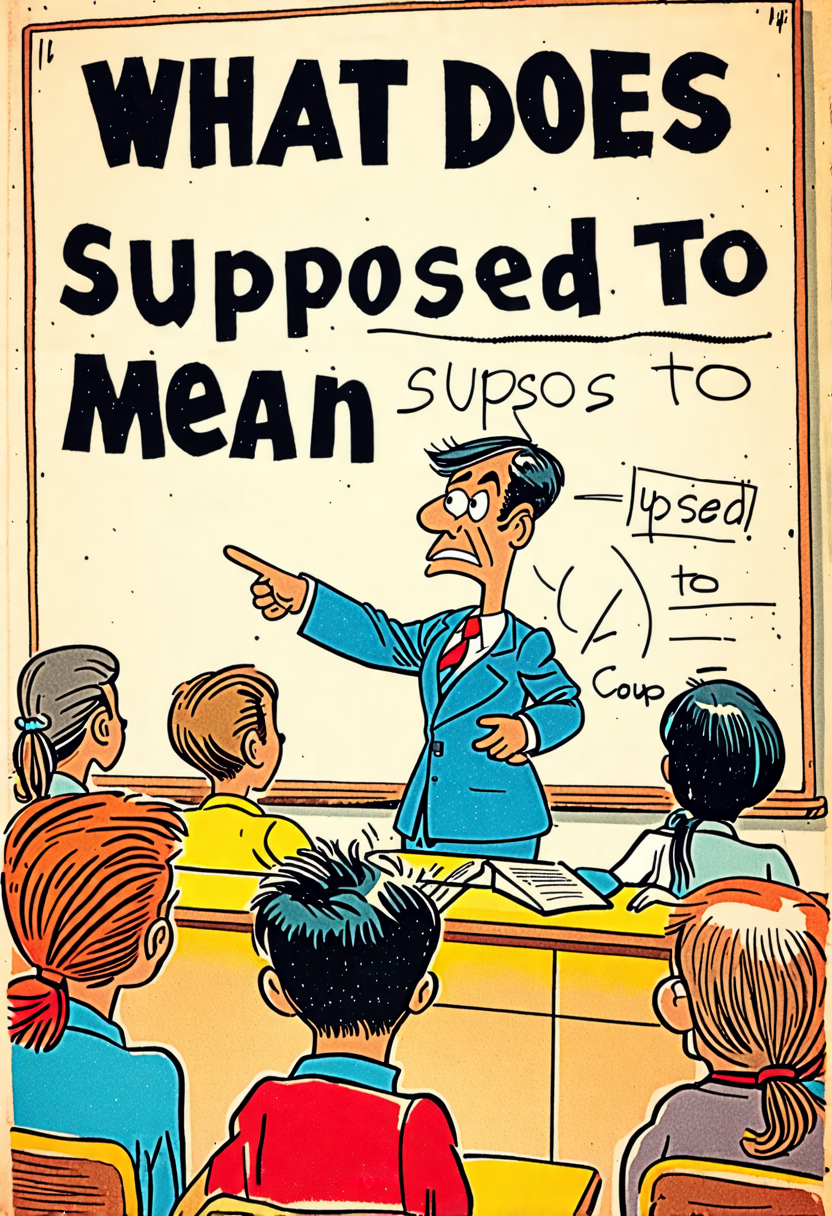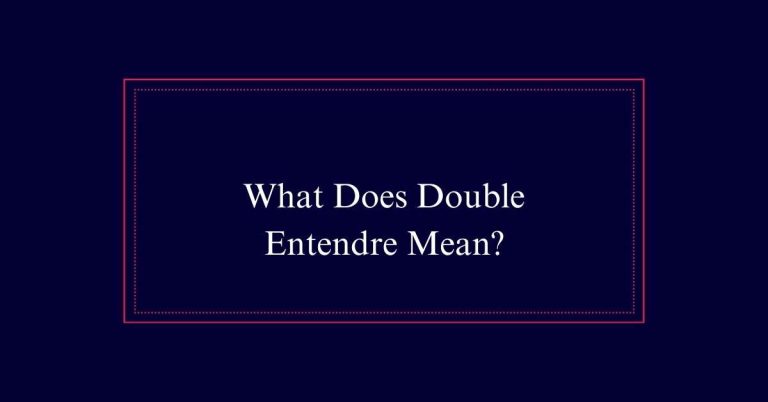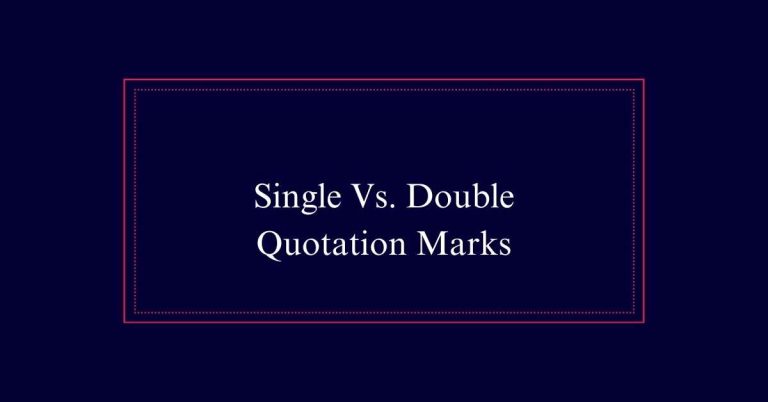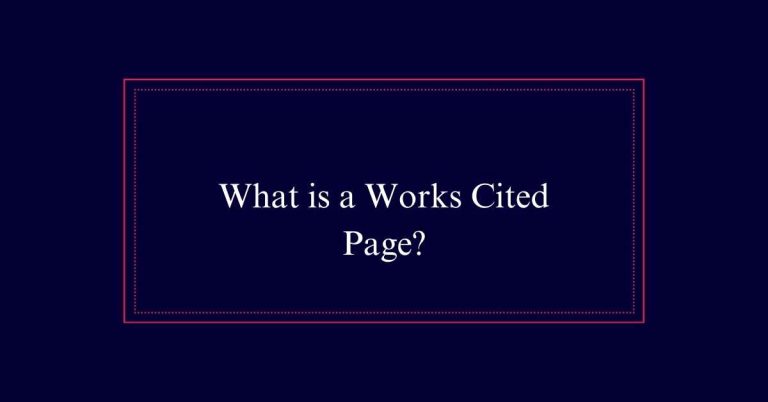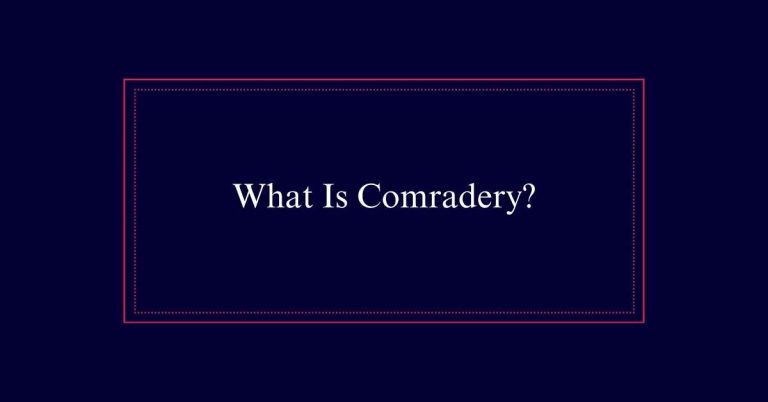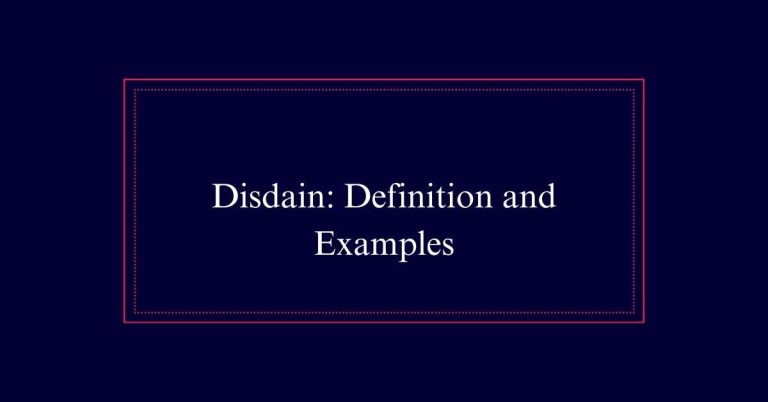What Does “Supposed To” Mean?
‘Supposed to’ signifies an expectation, obligation, or likelihood. It is often used to indicate what is required or anticipated in a given situation. The structure involves the verb ‘to be’ followed by ‘supposed to’ and the base verb. An example is ‘You are supposed to finish your homework.’ Common errors include using ‘suppose to’ instead of ‘supposed to.’ Additionally, it differs from ‘to suppose,’ which means to assume without proof.
Definition of ‘Supposed To’
The phrase ‘supposed to’ means that something is expected or required to happen. It functions like a modal verb phrase, often indicating obligation or expectation.
For example, one might say, ‘She is supposed to finish her report by Friday.’ Here, ‘supposed to’ suggests that completing the report by Friday is expected.
The structure includes a form of the verb ‘to be’ followed by ‘supposed to’ and a base verb, such as in ‘He is supposed to call.’
It is important to distinguish this from ‘to suppose,’ which means to assume something is true without certain proof.
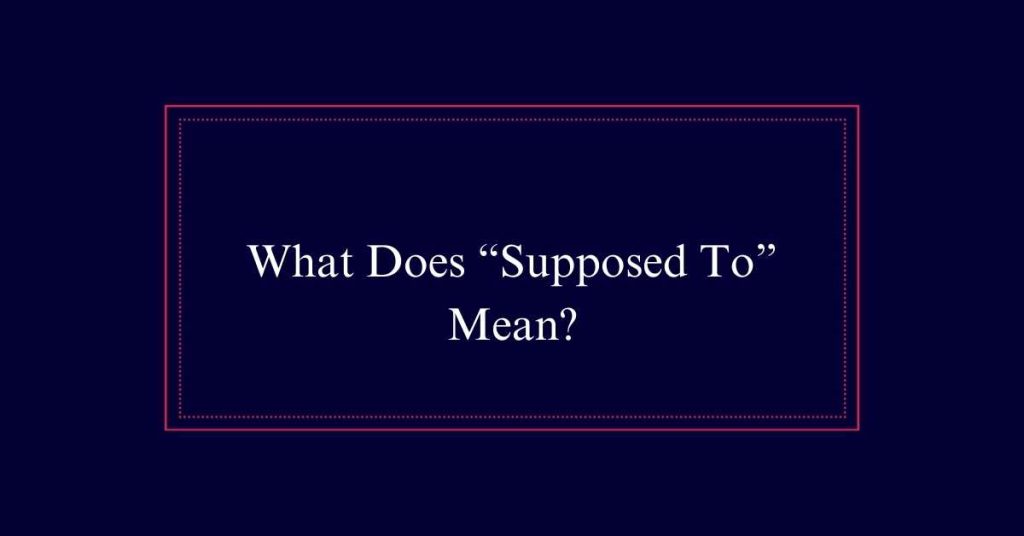
Common Misuse: ‘Suppose To’
Many people mistakenly use ‘suppose to’ instead of the correct form, ‘supposed to’. This common error arises from misunderstanding the phrase’s structure. ‘Supposed to’ is a fixed expression that means expected to or required to do something.
| Correct Usage | Incorrect Usage |
|---|---|
| I am supposed to work. | I am suppose to work. |
| She is supposed to call. | She is suppose to call. |
| They are supposed to arrive. | They are suppose to arrive. |
Expressing Obligation
Understanding the proper usage of ‘supposed to’ helps clarify how to express obligation in English. This phrase indicates an expectation or requirement. For example, ‘You are supposed to finish your homework before watching TV’ means that finishing homework is an expected duty.
The structure is always ‘to be’ followed by ‘supposed to,’ and then the main verb. It conveys a sense of duty that might not always be fulfilled. Unlike ‘have to’ or ‘must,’ which imply strict necessity, ‘supposed to’ leaves room for the possibility that the obligation might not be met.
Likelihood and Reputation
‘Supposed to’ can also convey what is likely to happen or what is generally believed about someone or something. This usage helps express common expectations or reputations. For example, ‘The train is supposed to arrive at 6 PM,’ implies a general belief about its schedule. Similarly, ‘He is supposed to be very talented,’ reflects a reputation. Understanding this nuance is vital for effective communication.
| Scenario | Example |
|---|---|
| Expected Event | ‘The meeting is supposed to start at 3 PM.’ |
| General Belief | ‘She is supposed to be very kind.’ |
| Reputation Based on Behavior | ‘John is supposed to be an expert in AI.’ |
| Likely Outcome | ‘It’s supposed to rain tomorrow.’ |
Proper Verb Pairing
Building on the idea of likelihood and reputation, it’s important to pair ‘supposed to’ with the correct verbs to convey clear expectations. This helps avoid confusion and guarantees that the intended meaning is communicated effectively.
When using ‘supposed to,’ always follow it with a base form of the verb. Here are some examples to illustrate proper verb pairing:
- Obligations:
‘She is supposed to complete the report by Friday.’
- Expectations:
‘They are supposed to arrive at 5 PM.’
- Permissions:
‘You are supposed to wear a helmet while biking.’
Understanding ‘To Suppose’
The verb ‘to suppose’ is used to indicate an assumption or belief without definite proof. It suggests that something is believed to be true, even if there is no concrete evidence to confirm it. For example, “I suppose he will arrive soon” means you think he will arrive, but you are not certain.
Here is a table to illustrate the use of ‘to suppose’:
| Example Sentence | Explanation |
|---|---|
| “I suppose it’s true.” | Believing something without proof. |
| “Suppose we go to the park.” | Considering a possibility. |
| “She is supposed to be here.” | Expected or required to be present. |
Hypothetical Situations
When utilizing ‘to suppose’ in hypothetical situations, it can be valuable to explore scenarios that are not real but imagined. This usage helps in understanding potential outcomes or examining possibilities without asserting them as facts. It allows us to discuss conditions that have not occurred but could happen.
Exploring Alternatives: It lets us consider different choices and their implications.
Testing Theories: It aids in verifying ideas by imagining their consequences.
Planning Ahead: It enables us to prepare for various future possibilities.
Using ‘to suppose’ in this manner is valuable in academic, professional, and personal discussions. It helps in structuring thoughts and making informed decisions.
Comparing ‘Supposed To’ and ‘Have To’
Understanding the difference between ‘supposed to’ and ‘have to’ is crucial for effective communication.
‘Supposed to’ conveys an expectation or obligation that may not necessarily be enforced. It implies that something is expected to happen but there is a possibility it might not. For example, ‘You are supposed to finish your report by Friday’ suggests an expectation, but it might not be mandatory.
On the other hand, ‘have to’ indicates a stronger obligation or necessity. It is equivalent to ‘must’ and leaves no room for choice. For instance, ‘You have to finish your report by Friday’ means completing the report is mandatory and non-negotiable.
Supposed To’ Vs. ‘Ought to
While ‘supposed to’ implies an expectation or obligation that may not be enforced, ‘ought to’ suggests a recommendation for what is best to do. The differences between these phrases are subtle but important for clear communication.
- Expectation vs. Recommendation:
‘Supposed to’ indicates an expected action, whereas ‘ought to’ suggests a beneficial action.
- Enforcement:
‘Supposed to’ often implies a duty that might not be strictly enforced. ‘Ought to’ does not carry the same weight of obligation.
- Usage Context:
Use ‘supposed to’ when referring to societal or organizational expectations. Use ‘ought to’ when giving advice or expressing moral duty.
